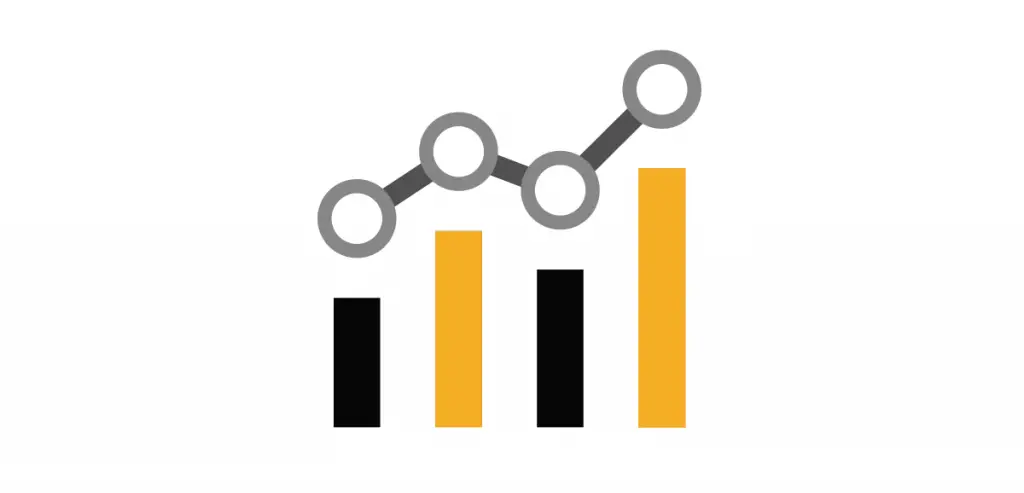In this article, you’ll learn all about SEO benchmarks.
When you monitor certain website statistics to benchmark SEO performance, you can track and measure key performance indicators (KPIs) that can help you evaluate the effectiveness of your SEO campaigns.
To help you do that, you’ll find a list of the top SEO benchmark metrics you can record as well as a comparison table with the most common benchmarks for popular industries.
The ultimate goal here is to give you a digital marketing guide you can reference when developing a set of KPIs to track your website’s search engine optimization performance.

What Are SEO Benchmarks?
SEO benchmarks are KPIs for measuring the SEO performance of a website for digital marketing. Examples of SEO benchmarks include average session duration, bounce rate, keyword rankings, conversion rates, page load speed time, number of backlinks, domain authority, page authority, and organic search traffic.
How Do You Benchmark SEO Performance?
You benchmark SEO performance by analyzing key website metrics for search engine optimization and user experience to set baselines for your data points. You then measure the SEO performance over a period of time to gain a before-and-after perspective and insights into these tracked benchmarks.
You can benchmark your SEO performance by using the free data provided in Google Analytics and Google Search Console and measure it on a daily, weekly, monthly, or yearly basis depending on the components of your SEO campaign. You’ll find a list of the top SEO benchmarks to consider tracking for your website below.
Why Is SEO Benchmarking Important?
SEO benchmarking is important because it helps businesses improve their SEO campaign performance. By measuring and tracking SEO benchmarks, you can understand how important each part of your SEO strategy is for increasing your website’s organic search traffic and other key metrics for user experience and conversions.

SEO Benchmarks List
1. Average Session Duration
This SEO benchmark metric measures the average amount of time spent per session on your website by dividing the total time spent across all user sessions by the total number of sessions.
2. Number of Sessions Per User
This value measures the total number of sessions divided by the total number of users. A higher number indicates repeated sessions per user.
3. Bounce Rate
This KPI reveals the percentage of people that land on a web page and leave without visiting another page on the site. A low bounce rate indicates the average user is clicking around to visit more pages and staying on your website for a longer period of time.
4. Unique Visitors
This data point tracks the number of unique visitors (i.e., new users) who have visited the website at least once during a specific time period. See this other guide on how to add keywords to a website to optimize your web pages to get more unique visitors.
5. Returning Visitors
This data point tracks the number of returning visitors who have been to your website before during a specific time period.
6. Unique Pageviews
This SEO number tells you how many times a specific web page was viewed at least once by each user. The unique pageview data aggregates all of the pageviews that are generated by the same user during the same session.
7. Total Pageviews
This number tells you how many times a specific web page was viewed in total by all users. It does not aggregate the data for each user session.
8. Entrances
This SEO benchmark provides the number of sessions that are entered (or started) on a particular web page. In other words, the number of times that page was the first page a user landed on when arriving at your website.
9. Exit %
This SEO metric gives you the percentage of exits where the target page was the last page viewed during a session. A user may have viewed several pages on the website before choosing to exit the site from that page, which is why the Exit % rate is different than the Bounce Rate.
10. Organic Search Traffic
This SEO performance benchmark shows the amount of organic search traffic that comes to your website through unpaid search result listings on search engines like Google, Yahoo, and Bing.
11. Average Page Load Time
The measurement provides an average amount of time (in seconds) it takes for a page to load from initiation of the pageview to completion in the browser.
12. Total Impressions
This metric tells you how many times users have seen a link to your web page in the Google search results.
13. Total Clicks
This data point indicates the total number of clicks that send users to a web page from Google Search.
14. Average Click-Through Rate (CTR)
This KPI reveals the percentage of impressions that resulted in a click to a web page.
15. Average Keyword Position
This SEO value refers to the topmost keyword position averaged across all impressions for every keyword the web page ranks for in Google Search. You can benchmark SEO performance even further by drilling down into a specific keyword for a target URL to see the average keyword position in Google Search for that single term over a period of time. See this other guide on how many keywords per page for SEO you should focus on.
16. Average Time On Page
This user experience metric displays the average amount of time visitors spend on a web page before exiting.
17. Page Value
This value indicates the average value for a page that a user visited before completing a conversion or an eCommerce transaction. By allotting a value for specific web pages, you get a better idea of which page contributes the most revenue for your business.
18. Number of Indexed Pages
how many of your URLs have been found by search engine crawlers and indexed in the search engines. You can use the “site:” operator followed by your domain to get an approximate number of pages indexed by Google. For example: site:seochatter.com.
19. Number of Linking Root Domains
This backlink metric tells you how many unique root domains link to a web page. Two or more links from the same domain would only be counted as one linking root domain. You can benchmark your SEO link building efforts by tracking the total number of root domains your website (or a particular page) accumulates.
20. Number of Backlinks
This backlink metric tells you the total number of links pointing to a web page. It does not aggregate the data for each root domain. If a domain links to your web page more than once, then all occurrences of links will be counted in the total number of backlinks. See these other guides on how to get high quality backlinks and how to get dofollow backlinks.
21. Domain Authority
This SEO benchmark metric is a search engine ranking score developed by Moz that predicts how likely a website is to rank in the SERPs. Higher Domain Authority scores indicate a more trusted and high-quality site that typically ranks higher in the SERPs for its target keywords.
22. Page Authority
This performance benchmark was also developed by Moz and is a search engine ranking score that predicts how well a single web page will rank on the SERPs. Higher Page Authority scores indicate more quality links to the page, which is a ranking factor for SEO.
23. Citation Flow
Citation Flow is a benchmark for SEO developed by Majestic that predicts how influential a URL might be based on how many sites link to it.
24. Trust Flow
Trust Flow is another benchmark developed by Majestic that analyses how trustworthy a web page is based on the quality of links pointing to it.
25. Core Web Vitals
Core Web Vitals are a set of factors that Google’s algorithm considers important in a web page’s overall user experience and impact your on-page optimization scores.
These factors include:
- Largest Contentful Paint (LCP): This measures page loading speed and marks the point at which the majority of the page content has been downloaded.
- First Input Delay (FIP): This quantifies the speed of the first initial engagement a user can have with a page.
- Cumulative Layout Shift (CLS): This measures the amount of layout shift on the visible content of the page (i.e. the visual stability as the page loads and is scrolled through).

SEO Benchmarks By Industry (User Metrics)
| Industry | Average Session Duration | Average Bounce Rate |
|---|---|---|
| Apparel | 4:12 | 44% |
| Automotive | 4:52 | 45% |
| B2B | 2:16 | 75% |
| Beauty | 4:07 | 48% |
| Biotech | 2:56 | 31% |
| Construction | 3:18 | 47% |
| Consumer Electronics | 4:34 | 44% |
| Ecommerce | 2:03 | 35% |
| Energy | 4:08 | 38% |
| Financial Services | 3:07 | 47% |
| Grocery | 5:01 | 40% |
| Higher Education | 3:34 | 51% |
| Legal Services | 3:02 | 44% |
| Luxury | 3:38 | 46% |
| Manufacturing | 3:37 | 36% |
| Pharmaceutical | 3:47 | 29% |
| Real Estate | 3:52 | 40% |
| Sales & Marketing | 3:31 | 39% |
| Travel | 4:46 | 43% |
| Telecommunications | 2:54 | 56% |
The SEO benchmarks by industry in the table above give you two KPI metrics you can measure for your website (Average Session Duration and Average Bounce Rate) based on the industry it falls under. Other data points like unique visitors vs returning visitors, average click-through rates, and the number of indexed pages cannot be measured on an industry-wide basis because every website and business is unique.
The best strategy you can use to measure your digital marketing efforts for SEO campaigns is to pick the website performance metrics that are most important for your business. Then, track those data points over time to see if positive progress is being made. If not, then you can adjust your SEO campaign and look for new ways to improve the user experience.
SEO Benchmarks Summary
I hope you enjoyed this guide on SEO benchmarks.
As you discovered, there are many ways you can benchmark your SEO to measure the performance of a website and the effectiveness of an SEO campaign. However, not all metrics must be recorded or tracked for a business, and not all benchmarks are the same for every industry.
When coming up with your own plan to assess your own website, make sure to choose the data points that matter most for the business. It may be the average session duration, average keyword positions, monthly organic search traffic, number of backlinks, etc. Each website and the metrics that are considered for success will ultimately depend on your top priorities and goals for the business.

SEO Chatter is dedicated to teaching the fundamentals of search engine marketing to help marketers understand how to increase organic website traffic and improve search engine rankings.
